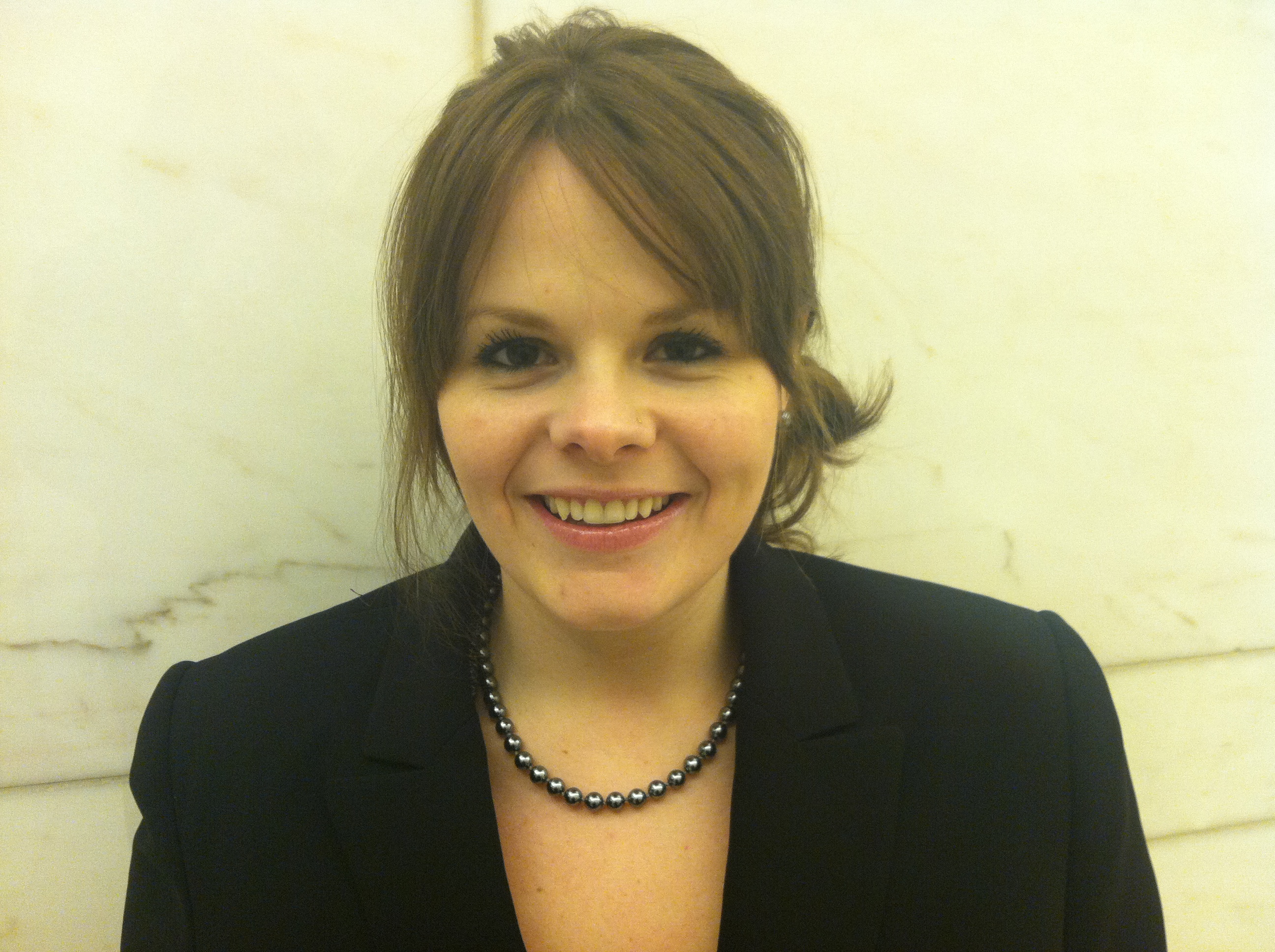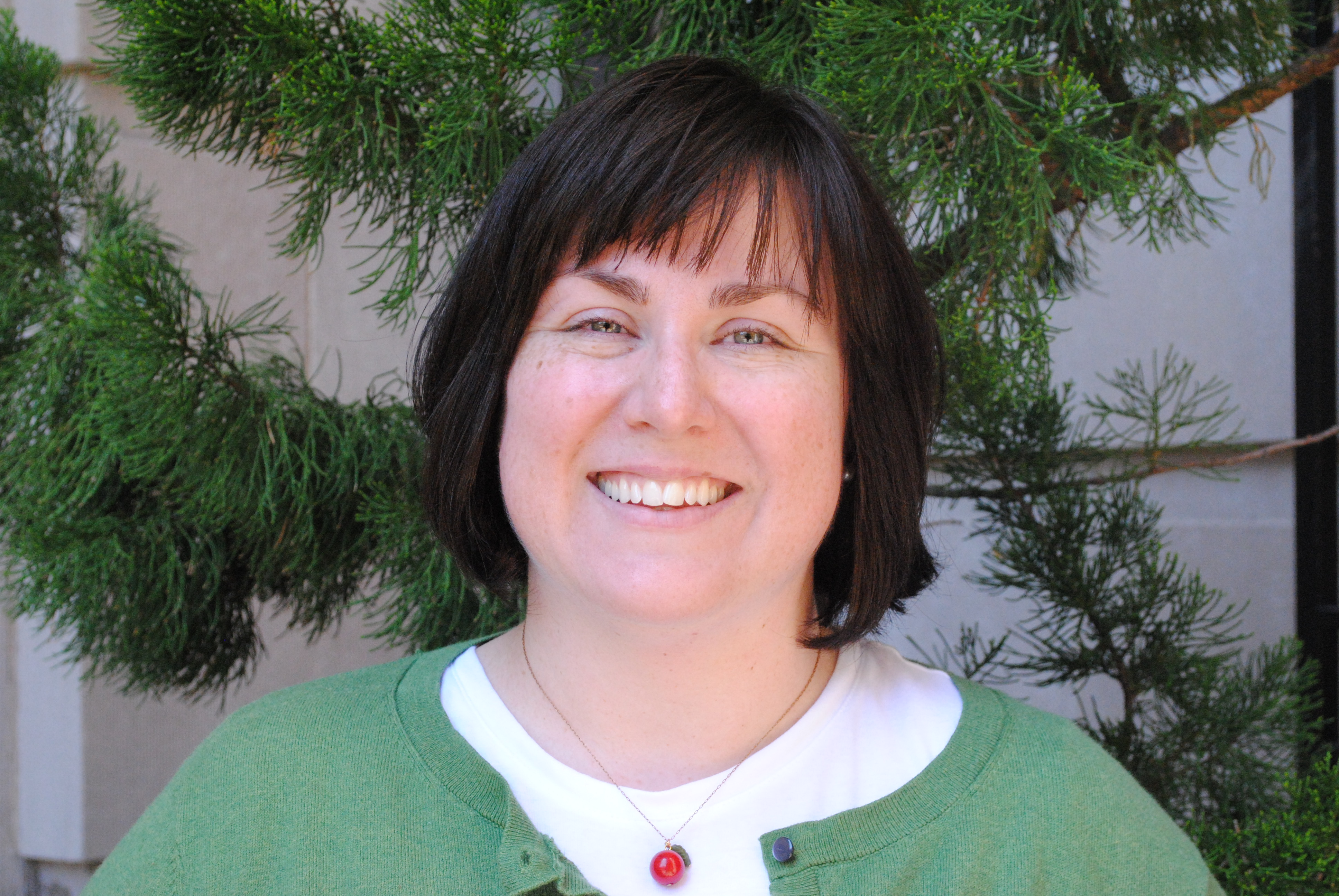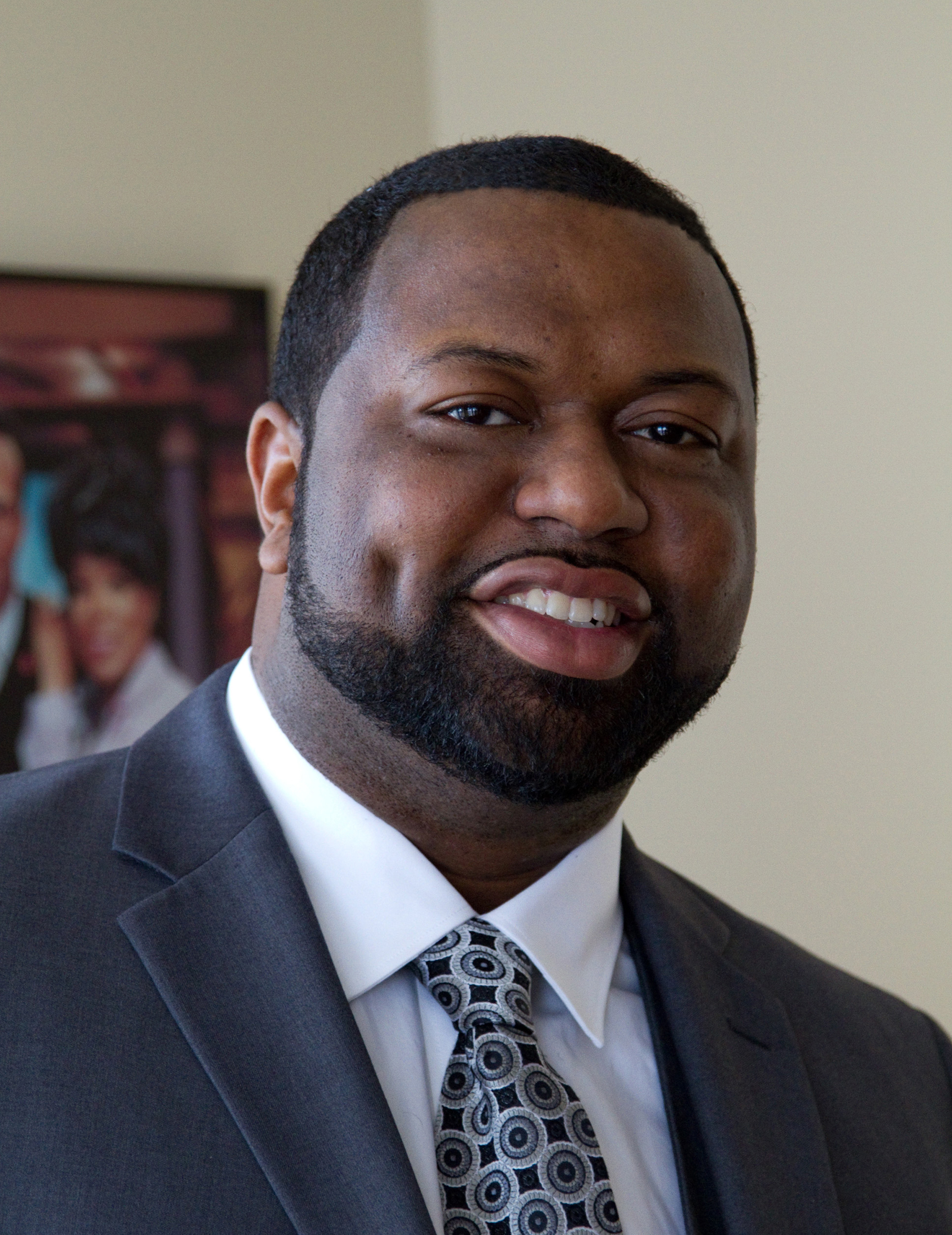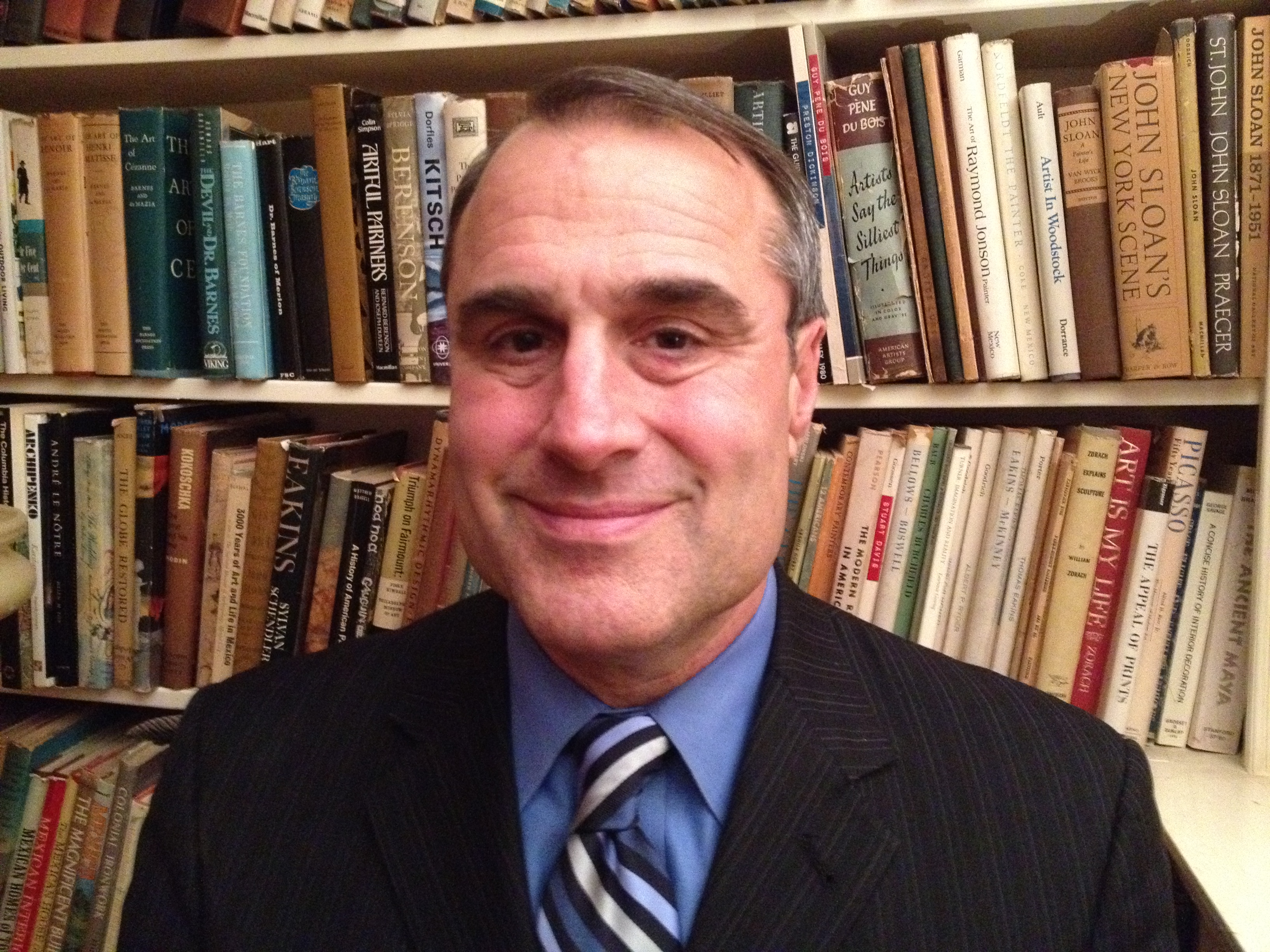Champions of Change Blog
Harness the Power of Service to Address Community Concerns
Posted by on January 12, 2012 at 2:00 PM EDT Dr. King once wrote in his collection of speeches and sermons, The Strength to Love, that “The ultimate measure of a man is not where he stands in moments of comfort and convenience, but where he stands in times of challenge and controversy.” During what has been one of the most challenging economic times for our country since the Great Depression, I have been inspired by and honored to work with some 3,000-plus project organizers across Pennsylvania, New Jersey and Delaware to coordinate what has become our nation’s largest Martin Luther King Day of Service event. Despite budget cuts and waning resources, these coordinators have been steadfast in their commitment to the principles of Dr. King and have shown, through the results of their King Day projects, that service is a vital tool which provides citizens with the power to address real-life community problems.
Dr. King once wrote in his collection of speeches and sermons, The Strength to Love, that “The ultimate measure of a man is not where he stands in moments of comfort and convenience, but where he stands in times of challenge and controversy.” During what has been one of the most challenging economic times for our country since the Great Depression, I have been inspired by and honored to work with some 3,000-plus project organizers across Pennsylvania, New Jersey and Delaware to coordinate what has become our nation’s largest Martin Luther King Day of Service event. Despite budget cuts and waning resources, these coordinators have been steadfast in their commitment to the principles of Dr. King and have shown, through the results of their King Day projects, that service is a vital tool which provides citizens with the power to address real-life community problems.This past September, the Corporation for National and Community Service released its Civic Life in America report, its research demonstrating that between 2008 and 2010, more and more Americans were turning to service to solve problems in their communities. As Outreach and Programs Manager at Global Citizen, I have enjoyed, in my own small way, being a facilitator of this trend. For the past four years, I have worked with nonprofit professionals, corporate volunteers, employees of city agencies and many others to conduct community needs assessments and develop King Day of Service projects to address community concerns. At Global Citizen, we use the King Day of Service to initiate or strengthen year-round partnerships with agencies that focus upon a wide variety of issues, including, but not limited to, hunger, education and the environment. Throughout the King Day planning process, I help project organizers determine how the service activities they coordinate on King Day could fit into larger, strategic goals, in this, allowing organizers to identify how their King Day projects could evolve into quarterly or even monthly efforts that address or alleviate ongoing needs.
For the 2012 King Day of Service, we anticipate another record turnout, with over 85,000 participants to be engaged in 1,300 projects. In the weeks following King Day, I will work with coordinators to collect outcomes and chart the impact of their projects. As part of the 2011 King Day of Service, 70,822 individuals benefited from or were impacted by the 1,200 projects that took place. 26,786 meals were prepared and served to the homeless. 22,917 items of food were donated and distributed to families facing food insecurity. 12,175 coats were donated, sorted and distributed to those in need.
These metrics, revolving around only a single day of service, not only illustrate the legitimate value of service in its ability to address needs, but also speak to the value of programs and organizations whose missions are to carry out service. AmeriCorps is one of our nation’s most valuable, yet perhaps least-known, resources. AmeriCorps programs have not only been instrumental in delivering services to some of our country’s most vulnerable citizens at a minimal cost, but have also played a crucial role in helping young professionals develop job skills and launch their careers. After completing AmeriCorps, many alumni, like me, move on to full-time careers in public service where they continue their work as civic leaders. As we work through this time of economic challenge, it is important that we stand together to make sure that programs like AmeriCorps continue to receive the support and funding they deserve. I am deeply humbled to be honored as a Champion of Change for my work on the Greater Philadelphia Martin Luther King Day of Service and look forward to continuing my career in service, helping others uncover and harness the great power that lies within civic engagement.
Rachel Turner is the Outreach & Programs Manager at Global Citizen, the Philadelphia-based nonprofit organization that coordinates the Greater Philadelphia Martin Luther King Day of Service, the country’s largest King Day of Service event
Learn more about ServiceProtecting a National Hero
Posted by on January 12, 2012 at 2:00 PM EDTEdwin Fizer enlisted in the Marines in July 15, 1942. He had just turned 17 on July 1, 1942. Mr. Fizer was a native of New Orleans. He became a member of an elite group known as the Montford Point Marines.
The 51st Composite Defense Battalion was formed at Camp Lejune. Eventually, in 1944, the entire 52nd Battalion shipped out, making their first landing at the Marshall Islands, and later the Mariana Islands, which consisted of Guam, Tinian, Saipan and Okinawa-about 400 miles from Japan.
Fizeer vividly recalls the many racial indignities he and his Black comrades were subjected to throughout his entire term of service.
The war ended in 1945 and Fizer was Honorably discharged. He returned to New Orleans where Jim Crowe remained alive and well.
Shortly after discharge with the help of the GI Bill he completed his training at the Illinois College of Optometry. Searching for what he called the "unknown”, his career began to evolve. He joined the Chicago Police Department where he was assigned to a detail that protected Dr. Martin Luther King when he was in Chicago.
Edwin Fizer has been a Senior Companion with the Suburban Cook County Senior Companion program since August 2008.
Learn more about ServiceService as a Life and Legacy
Posted by on January 12, 2012 at 2:00 PM EDT Dr. Martin Luther King, Jr. challenged us to be responsible for one another, be engaged in our communities, and empower each other to create change. It is an honor to be recognized as a Champion of Change the week before millions of American’s honor Dr. King’s legacy on a national day of service and answer Dr. King’s question, “What are you doing for others?”
Dr. Martin Luther King, Jr. challenged us to be responsible for one another, be engaged in our communities, and empower each other to create change. It is an honor to be recognized as a Champion of Change the week before millions of American’s honor Dr. King’s legacy on a national day of service and answer Dr. King’s question, “What are you doing for others?”Since The Campus Kitchens Project (CKP) committed to participating nationally in MLK Day of Service, thanks to funding from the Corporation for National and Community Service, we have helped organizations from California to Vermont pick up rakes, paint brushes, garbage bags and wooden spoons to create a lasting impact in their communities. Over three years, more than 11,000 volunteers have completed over 600 service projects on MLK Day to honor Dr. King’s legacy. Projects include resume building workshops for unemployed men and women, disaster relief in the face of tornado and wildfire damage, and creating a community garden that has gone on to provide fresh, organic produce for low income children.
But service is not something we should only do on a designated day in January. Every day student volunteers across the country come to work at a Campus Kitchen and help their neighbors in need. With the mission of using service as a tool to strengthen bodies, empower minds, and build communities, The Campus Kitchens Project (CKP) is a student-powered hunger relief organization hard at work on 31 high school and college campuses. We are working to evaluate community needs, promote access to healthy food, and most importantly, develop the next generation of leaders across the country.
Since 2001, CKP volunteers have recovered more that 2 million pounds of food from dining halls and employed idle kitchens to serve 250,000 meals annually. Volunteers deliver these meals to local agencies saving community organizations money and ensuring quality nutrition for clients. But meals are not all that a Campus Kitchen dishes up. Students act as mentors and tutor youth, provide nutrition education for families, cultivate community gardens and teach culinary job training classes for unemployed adults. Many Campus Kitchens have begun SNAP outreach programs to ensure those eligible are receiving benefits, others work with local farmer’s markets to promote the use of EBT cards to make fresh, local produce more available; and still other kitchens have established on-campus markets to promote sustainable food resources and economic development opportunities for local farmers. Student service is creating real impact on the economy, the environment and in the lives of those being served.
When we choose to serve one another we begin to cultivate a shared vision of what life could be like no matter the economic hardships, natural disasters, wars or hunger that we face. Service connects friends and neighbors and empowers both those serving and those being served to create lasting change in their lives and communities. Civil rights, economic and educational equality and service are the hallmarks of Dr. King’s life and legacy. I like to think Campus Kitchens strive to achieve those same values everyday and I am proud to represent them.
Maureen Roche serves as the director of The Campus Kitchens Project, the national program of DC Central Kitchen
Learn more about ServiceFrom Civil Rights to Silver Rights
Posted by on January 12, 2012 at 2:00 PM EDT
There are more people in the United States today without a bank account -- 17 millions to be exact -- than there were without the right to vote in the early 60's. Think about that for a minute. Dr. Martin Luther King Jr.’s final action and unfinished dream was launching a Poor People’s Campaign that attacked unfair housing practices and sought to root out economic injustice and disparity for the underserved. Now here we are some 40+ years later and we still struggle with tragic statistics like these pulled from a recent study conducted by the FDIC.
The proportion of U.S. households that are unbanked varies considerably among different racial and ethnic groups, with certain racial and ethnic minorities more likely to be unbanked than the population as a whole. Minorities more likely to be unbanked include blacks (an estimated 21.7 percent of black households are unbanked), Hispanics (19.3 percent), and American Indian/Alaskans (15.6p ercent). Racial groups less likely to be unbanked are Asians (3.5 percent) and whites (3.3 percent).
Bottom line -- without basic access to mainstream financial services and a fundamental understanding of the language of money, when nearly 20% of Latinos and nearly 22% of Black households remain unbanked, we usher in a new form of social injustice and disparity, an age of what should be considered economic slavery.
In the face of these sobering statistics our mission must be to ensure and fight for, “Silver Rights” and “Financial Dignity” for all — or in other words, finding ways to make free enterprise and capitalism work for the poor and underserved. To make financial dignity, and the tool of financial literacy, the new civil rights issue for a generation. That process starts with acquiring a basic understanding of the language of money, the teaching of financial literacy, and the practice of Economic Empowerment.
Learn more about Civil Rights, ServiceNot Just Another National Holiday
Posted by on January 12, 2012 at 2:00 PM EDT
In 1988, two years after Martin Luther King Day was first observed as a national holiday, I was working late into the evening with then Pennsylvania Secretary of Labor and Industry, Harris Wofford. Harris had been a close friend and colleague of Dr. King during the civil rights movement. He and I began discussing the irony of how despite Dr. King’s legacy as a champion of action and social justice, in the two years since the national holiday began, it was becoming just another day off for millions of Americans. Harris thought that Dr. King would have been appalled had he known that young people were using his holiday to sleep late, go to the mall and watch television, rather than being engaged in efforts to improve communities.
Harris and I envisioned a different kind of holiday, fitting of Dr. King’s legacy of social change. We imagined diverse groups of people throughout the nation celebrating Dr. King’s legacy by serving others. This service would bring together people of all ages and backgrounds to identify pressing community challenges, turn concerns into citizen action, and build partnerships that would act as a springboard to sustainable civic engagement.
By 1994, Harris was a U.S. Senator from Pennsylvania and I was his state office Chief of Staff. While six years had passed since our 1988 late night conversation, we would often ruminate that the Martin Luther King holiday needed to include honoring Dr. King in other ways fitting of his legacy. Then, Harris, along with Atlanta Congressman John Lewis, championed this call to citizen action by co-authoring the King Holiday and Service Act. President Clinton signed this legislation into law later that year on August 23, creating the national Martin Luther King Day of Service.
Learn more about ServiceFaith Moves Mentoring
Posted by on January 12, 2012 at 2:00 PM EDT
We all have a choice in life to define our legacy and assess our true divine calling. As we approach the time of year of reflection on the tremendous contributions made to our society by the Rev. Dr. Martin Luther King, Jr, I am reminded of his simple request wanting to be remembered as someone who simply tried to love. Dr. King’s spirit moves through me, daily, as I have made a conscious decision, moving by faith, that I want my legacy to be defined by the love for my community in my role as the Executive Director of Mentoring USA.
Mentoring USA, an affiliate of HELP USA, was founded in 1995 by New York State former first lady Matilda Raffa Cuomo. As a structured site-based mentoring organization, we provide comprehensive mentoring services and activities for youth, ages 7-21, through partnerships with schools, corporations, faith-based institutions, foster care agencies, community centers, and housing facilities nationwide. Once mentors are screened and trained, they play a vital role in teaching essential life skills such as: financial and media literacy; cultural awareness and respect; anti-bullying; self-esteem improvement; and living healthy lifestyles to the mentees in our program for a minimum of four hours per month. Essentially, our mentors are ‘positive opportunity brokers’ who serve selflessly to provide access to information, education, and opportunity to our mentees, and in some cases, the mentee’s family.
In the role as a mentoring executive, I am required to wear multiple hats in order to fulfill the goal of inspiring individuals—youth and adults, corporations, community partners, etc. to become agents of change. Some days I feel like I am a faith coach developing spiritual athletes and teaching youth and adults to: press on when life throws a curve ball, lift up in prayer challenging circumstances, and hurdle the temptation to engage in activities that will hurt their families and communities. Other days, I feel like a banker, investing in our communities and youth by using asset-driven language that deposits hope without withdrawing faith. My thought is that things can improve if we exercise an all 'hands on deck' approach in our respective communities.
Learn more about , Service
- &lsaquo previous
- …
- 141
- 142
- 143
- 144
- 145
- 146
- 147
- 148
- 149
- …
- next &rsaquo
White House Blogs
- The White House Blog
- Middle Class Task Force
- Council of Economic Advisers
- Council on Environmental Quality
- Council on Women and Girls
- Office of Intergovernmental Affairs
- Office of Management and Budget
- Office of Public Engagement
- Office of Science & Tech Policy
- Office of Urban Affairs
- Open Government
- Faith and Neighborhood Partnerships
- Social Innovation and Civic Participation
- US Trade Representative
- Office National Drug Control Policy
categories
- AIDS Policy
- Alaska
- Blueprint for an America Built to Last
- Budget
- Civil Rights
- Defense
- Disabilities
- Economy
- Education
- Energy and Environment
- Equal Pay
- Ethics
- Faith Based
- Fiscal Responsibility
- Foreign Policy
- Grab Bag
- Health Care
- Homeland Security
- Immigration
- Innovation Fellows
- Inside the White House
- Middle Class Security
- Open Government
- Poverty
- Rural
- Seniors and Social Security
- Service
- Social Innovation
- State of the Union
- Taxes
- Technology
- Urban Policy
- Veterans
- Violence Prevention
- White House Internships
- Women
- Working Families
- Additional Issues

